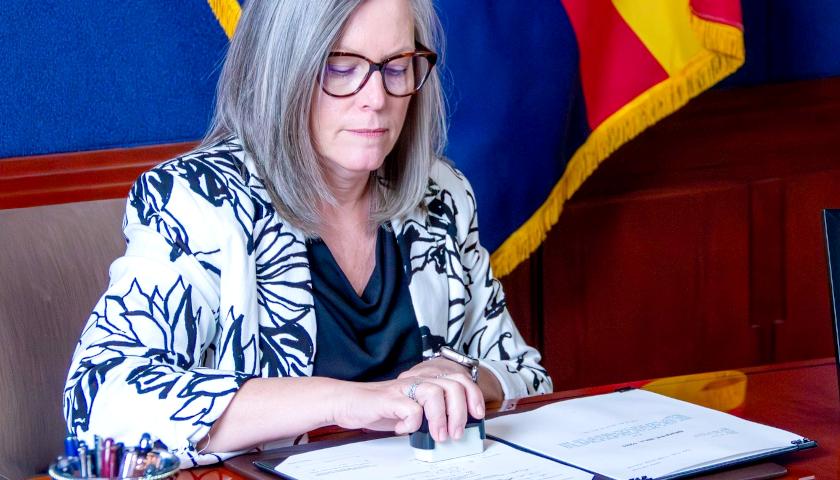Pennsylvania State Representatives Jordan Harris (D-Philadelphia) and Sheryl Delozier (R-Camp Hill) on Friday reintroduced “clean slate” legislation to subject low-level drug felonies to automatic record sealing.
The new bill boasts not only a bipartisan roster of legislative backers but also a philosophically broad range of supportive organizations including the pro-free-market Americans for Prosperity (AFP), the Pennsylvania Chamber of Business & Industry, the Faith and Freedom Coalition, the Pennsylvania District Attorneys Association, the Justice Action Network, Right on Crime and Community Legal Services of Philadelphia.
Pennsylvania’s Clean Slate law that went into effect in 2018 requires the sealing of records for many individuals who were convicted of misdemeanor or summary offenses. In a memorandum asking colleagues to cosponsor their measure, Harris and Delozier credited the statute with making a positive difference in the lives of 1.2 million state residents. But, they added, Pennsylvania is one of 15 states that does not provide for the sealing of any felony records and they reasoned that available data support changing state policy in this regard.
The representatives stated their legislation would require automated sealing for those convicted of minor drug felonies who have managed to stay crime-free after 10 years. If someone received a sentence of 2.5 years or more — which would apply to trafficking and violent crimes — they would not be eligible to get their records sealed.
“Research has found that the recidivism risk of those with a prior criminal record falls below the risk of arrest for the general population approximately after four to seven years for violent offenders, four years for drug offenders, and three to four years for property offenders,” Harris and Delozier wrote.
Their bill would also lessen the clean-slate waiting period for summary offenses from 10 to five years and the waiting period for misdemeanor offenses from 10 to seven years.
The representatives recalled a hearing the House Judiciary Committee held last August at which resident Geena Davis described a felony controlled-substance conviction that she received over 30 years ago. Despite her regret for her crime and her diligence in later receiving two master’s degrees, she said she still suffers professionally because of her one nonviolent drug crime. The legislators’ memo said she is among many whose lives they expect their bill to improve.
AFP state director Ashley Klingensmith praised Harris and Delozier’s proposal as likely to make a difference for thousands of Pennsylvanians by both aiding the Keystone State’s workforce and decreasing recidivism.
“This is the kind of bipartisan solution that Pennsylvanians should expect from their lawmakers,” she told The Pennsylvania Daily Star. “Representatives Harris and Delozier’s bill will make a huge difference for Pennsylvanians who have repaid their debt to society and are ready for a second chance.”
– – –
Bradley Vasoli is managing editor of The Pennsylvania Daily Star. Follow Brad on Twitter at @BVasoli. Email tips to [email protected].
Photo “Sheryl Delozier” by PA State Rep. Sheryl Delozier. Photo “Jordan Harris” by Rep. Jordan Harris. Background Photo “Pennsylvania State Capitol” by Dough4872. CC BY-SA 4.0.




